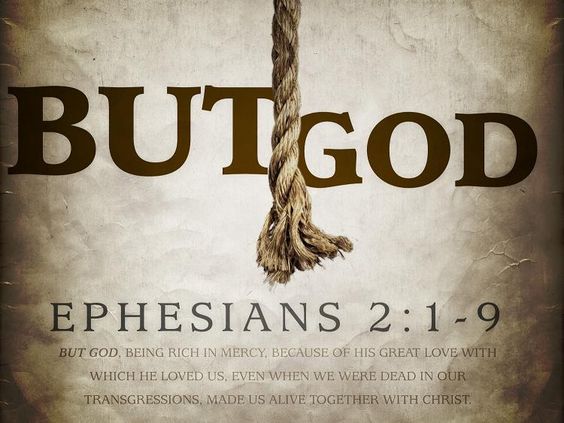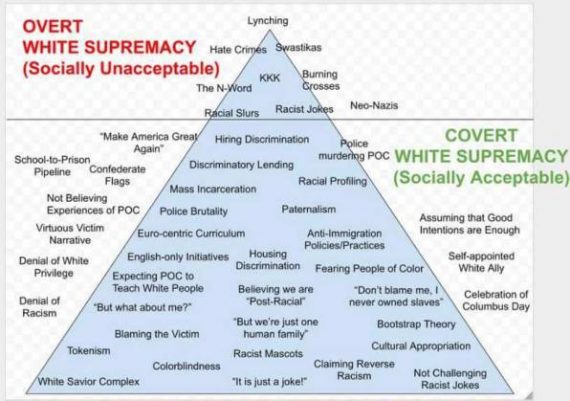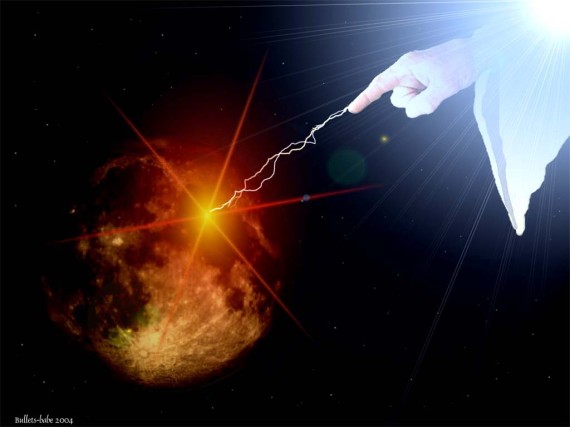Ephesians 2:18-22 is the final section in Ephesians 2 which shows us how God brings peace and unity to this world through the church. If we want peace and unity in this world, then it begins by living in peace and unity with other members of the family of God. Ephesians 2:18-22 shows us how this happens.

Before we study this text, we consider a question from a reader about why he no longer senses God’s work in his life.
Question from a Reader
I’m 63 and I grew up in church. I used to do small things in the church. I would give out tracts and talk to people. I believe Jesus is the son of the living God and became human. I used to read my Bible all the time. But recently, I don’t get any spiritual understanding when I read the Bible. The Holy Spirit does not witness to me. I cry out to God to save me and change me, but I don’t get answers. Can you help me?
Take heart! What you are describing is a very common experience for all Christians. Ancient Christian teachers called it “The Dark Night of the Soul,” but I prefer to call it “the spiritual winter.” Either way, the idea is the same.
It is very helpful to think of your life with God as a cycle or pattern that imitates the daily pattern of day and night, or the yearly pattern of four seasons: spring, summer, fall, winter.
When you feel that God is close, that your prayers are answered, that you are being fed and sustained through Scripture, and that the Spirit is actively at work in your life, these are the spiritual days, or, the spiritual spring and summer. Life is good. Joy abounds. There is sunshine and chirping birds and gentle breezes that carry hints of summer flowers.
But such times do not last forever. Day always gives way to the night, and summer gives way to fall and winter. In the night, everything is dark. It is hard to see. It gets cold and sometimes scary. The same is true for the fall and winter. Trees and grass whither. The snows and ice fall and everything dies. God is silent. Prayers go unanswered. The Bible seems dead and uninteresting.
But guess what? Morning is coming. Spring is coming! The cycle of light and growth will come again.
So when you find yourself in the dark night of the soul, or in the spiritual wasteland of a bleak winter, just be patient. Have faith. Persevere. Because this season too shall pass.
Now why does God do this to us? Why do we go through these seasons? Because this is how true growth occurs. It is in the dark night and the bleak winter that our convictions are tested, our faith is solidified, and our roots grow deep down into the soil. We need these times in order to prepare for the next stage of growth and abundance. These nights and winters are the times God provides so we can practice what we have learned in the bright days of summer.
So keep doing what you are doing. Keep patient. Keep the faith. Dawn is near. Spring is coming.
How Homeless Aliens Change the World (Ephesians 2:18-22)
Strife, division, and hostility are not new in our day. They have been present since the beginning of the world when Cain killed Abel, or even before that when Adam blamed Eve for why he ate the forbidden fruit. Blame, accusation, violence, and death are the foundational characteristics of our culture.
But it does not need to be that way, and this is not what God wants.
God calls us to live differently in this world, and Jesus showed us how this could be done. In Ephesians 2, Paul explains how Jesus showed this to us and how we should live in light of what Jesus showed us.
One of the primary areas of division in Paul’s day was the religious/political division between Jews and Gentiles. If you took all the religious, racial, economic, cultural, and political strife of our day, that is what you have with the Jew and Gentile strife of Paul’s day.
And in Ephesians 2:18-22 he tells them, and therefore us, how to live in peace and unity with each other. These verses show us that if we want to live in peace and unity with those who would normally be our enemies, we need to change our mindset about who we are and who other people are.
You see, division and strife occurs when we focus on the things that make us different. But as followers of Jesus, there are several key truths about all of us that help unite us together, despite our differences. If we are able to focus on the things that unite us, then the things that make us different will no longer divide us because we will see that they are insignificant compared to who we are and what we have in Jesus Christ.

Let’s begin with Ephesians 2:18.
Ephesians 2:18. For through Him we both have access by one Spirit to the Father.
We talked about this some in our study of Ephesians 2:13-17, where we saw that in the days of Jesus and Paul, Gentiles and Jewish women did not have the same access to God in the temple as Jewish men did. But Jesus broke down all these barriers and dividing walls of hostility, so that now everyone has the exact same access to God.
There is no hierarchy. There are no favorites. There are no classes of people who have a special “in” with God. Paul is saying, “All have access. Both Jews and Gentiles have access. Both men and women. There is no privileged race or person or sex. There is no privileged class or position.”
Some religions and cults teach that only priests and pastors have access to God. That is not true. Catholicism teaches that Mary, the mother of Jesus has privileged access to Christ. That is not true either. First Timothy 2:5 says there is one mediator between God and man—Christ Jesus. If you want to go to God to confess your sins, or to ask for a request, you can! You don’t have to go through Mary. You don’t have to go through a priest or a pastor. You don’t even need to go to a special building such as a church or temple. You have Top Level Access to God all the time, anywhere you are. Hebrews 4:16 says that now we ourselves can come boldly before the throne of grace.
And of course, Paul writes that this access to the Father is provided by the Spirit, which is the Holy Spirit.
Here’s how this helps us today.
Today, we all have the tendency to think that some of us are closer to God than others. Some of us think that pastors have a better chance of getting their prayers answered because they are closer to God. So when we have a prayer request, we ask our pastor to pray for us. But pastors are not any closer to God than anyone else. God hears and answers your prayers just as much as the prayers of a pastor or priest. We all have equal access.
Some people think that church attendance, or political views, or vaccination status, or educational degrees, or moral ability makes one person closer to God than someone else. But again, none of this is true. We all have equal access to God the Father through the Holy Spirit. There is no special class of people. And the minute you start thinking that you are on better spiritual footing than someone else is the minute you start dividing from them.
So when it comes to living in unity with others, the first step is to realize that all of us have equal access to God through the Holy Spirit. Nobody is first in line.
The second truth is similar, and is found in Ephesians 2:19.
Ephesians 2:19. Now, therefore, you are no longer strangers and foreigners, but fellow citizens with the saints and members of the household of God.
The term strangers (xenos) is a word for a short time resident—a transient. In today’s terminology, we would say “homeless.”
The term alien or foreigner, (paroikos) is a word for a person who is living in a country other than the one they were born in. They have no inheritance rights, no secure protection under the law, no voting rights. In our day, we would call them illegal aliens.
These two terms together show how much we do not belong. These are repeated ideas from Ephesians 2:12.
We were strangers and foreigners. We were homeless aliens, without rights or protection.
But we no longer carry that description.
Rather, also in Ephesians 2:19, we are fellow citizens with the saints. We often think of saints as having special rights and privileges; special access to God. But Paul says we are fellow citizens with them. Whatever they have, we have. Whatever rights they own, we own. In fact, in Ephesians 1:1, Paul wrote that all believers are saints, and therefore, all believers are citizens.
Citizenship was a prized possession in the time of Paul. Men and women would work their whole lives and pay huge amounts of money in order to become citizens of Rome. But if being a citizen of Rome was special, imagine how great it is to be citizens with the saints? According to Ephesians 2:19, that is what we are.
But more than just citizens, we are also members of the household of God. Now think about it. What is better? Being a citizen of Rome, or being a heir to the throne of the Roman Empire? America is not a monarchy, so think of England. Which would you rather be? A citizen of England, or a prince or princess of England? Of course we would want to be the prince or princess! And Paul says here, that is what we are.
Our third title is that we are members of the household of God. Not only are we saints because we are citizens, we are princes and princesses because we are members of God’s household. These are the titles we have in Christ.
There are two ways that this helps us live peacefully in this world with others.

First of all, similar to what we saw in Ephesians 2:18, all followers of Jesus are on equal footing with each other in the kingdom of heaven. Yes, we are royalty as members of the household of God, but we are all royalty. That means that we are all on equal footing. Seeing other Christians as other princes and princesses in the family of God will help us live in peace and unity with them, even if we have areas of disagreement.
But here is the second thing to understand, and this second truth helps us live in peace and unity with the rest of the world … with those people who are not Christians. Since we are citizen of heaven and members of the household of God, this means that we now are aliens in this world. Although we were aliens and strangers to the kingdom of heaven, we are now aliens and strangers to the kingdom of this world. Since we are citizens of heaven, this makes us foreigners and strangers in this land, in this world.
So when we see the world doing things that are contrary to God’s will, or that we disagree with, we can now respond in two ways. Rather than condemn the world and create division and strife, we can first of all just shake our heads sadly and think to ourselves, “What a strange way of doing things … it seems backward and updside-down, but then, this is a different land I am in, and they do things quite differently here.” You see, when it comes to living in this world, it is we who are the strangers in a strange land. It is we who are aliens in a land not our own. And this world lives and operates quite differently than the kingdom of heaven, from which we come.
However … and here’s the key … it is true that the way this world operates is destructive and damaging. Why? Because it operates according to the principles of the kingdom of darkness. The ways of the kingdom of God truly are better.
But since we are aliens and strangers to this land, we do not have a voice here. We do not have rights here. So we cannot just go around accusing and condemning people for their backward ways. We are the foreigners and do not have the right to do that here.
Instead, what we can do is live in such a way amongst ourselves that the watching world sees how we live in love and unity with each other, and says to themselves, “Hey, I want that too!” When we live the rules of the kingdom of God before a watching world, they want what we have and will learn from our example to live in love and unity as well. We show the world by how we live that there is another way, a better way. A way of peace, love, grace, forgiveness.
Indeed, this is exactly how Jesus showed us the new way of living, and we are now expected to follow His example, and show the world this new way of living as well. This is exactly what Paul writes in Ephesians 2:20.
Ephesians 2:20. … having been built on the foundation of the apostles and prophets, Jesus Christ Himself being the chief cornerstone,
The foundation of the apostles and prophets that Paul refers to here is the teachings of the apostles and prophets, which we now think of as the Old and New Testaments of Scripture.
The apostles were those who personally witnessed Christ and were taught directly by Him. There are no more apostles today. But the apostles left something for us—they left writings about Christ. We know these writings as the New Testament. Paul says here that the first foundation we have is the writings of the apostles which is the New Testament. The writings and teachings of the prophets are found in the Hebrew Scripture, which we call the Old Testament.
 And as Paul points out in the last part of Ephesians 2:20, Jesus Christ is the chief cornerstone. In other words, Jesus Christ is the central truth of Scripture, to whom all Scripture points, and in whom all Scripture is fulfilled. Jesus is the scarlet thread on every page. He is the fulfillment of every law. He is the beginning and the end. He is what it is all about (John 5:39).
And as Paul points out in the last part of Ephesians 2:20, Jesus Christ is the chief cornerstone. In other words, Jesus Christ is the central truth of Scripture, to whom all Scripture points, and in whom all Scripture is fulfilled. Jesus is the scarlet thread on every page. He is the fulfillment of every law. He is the beginning and the end. He is what it is all about (John 5:39).
The cornerstone is the foundational stone of a building. When a building in ancient times was being constructed, the first and most important stone to be laid was the cornerstone. If it was prepared and laid correctly, the building would be square and strong. If it had imperfections and was laid poorly, the building would be flawed and weak (cf. Isa 28:16).
It is just like when you’re laying shingles on a house, or plowing rows in a field. The first shingle and the first row must be perfect, or all the rest will be out of place.
Paul is saying that Jesus, as the chief cornerstone, showed us how to live with one another in this world. Jesus did this by following, fulfilling, and even guiding and inspiring the teachings of the apostles and prophets. So when we follow the example of Jesus, we are also obeying and fulfilling the teachings of Scripture.
And when we do this, this is how we show the world a better way to live. A way guided by love and forgiveness, that results in peace and unity.
In fact, a focus on Jesus as the chief cornerstone will in itself create peace and unity. We humans so often get dived by how we identify ourselves.
Today, we are divided by who we follow: Moses, Mohammad, or Mahatma Gandhi. We are divided by our political persuasion: Democrat or Republican. We are divided by our vaccine status. We are even divided by our pronouns.
But what if we as followers of Jesus stopped identifying with these divisive things, and started instead to identify as a follower of Jesus. How do you identify? I identify as a follower of Jesus. That’s unifying, isn’t it?
When we live in these ways, this is when the church comes together as God wants, lives in this world as God desires, and therefore, shows the world a better way to live.
Ephesians 2:21-22. In whom the whole building, being joined together grows into a holy temple in the Lord, in whom you also are being built together for a dwelling place of God in the Spirit.
There are two words in Greek for “temple.” The first, hieron, is used for the whole building and vicinity. It is used for the temple grounds. That is not the word used here.
The word used here is naos. It has in view just the part of the temple where God dwells.
During the time of Solomon’s temple, God’s presence was in the Holy of Holies—the most sacred part of the temple. That is what is in view here. But, as I mentioned, only the High priest could enter the Holy of Holies, and that only once a year.
But when Jesus died on the cross, the veil which separated man from God in the Temple was torn in two from top to bottom. This symbolized that the breach had been filled. The separation had been spanned. The wall had come down.
In A.D. 70, the temple was destroyed. Does that mean that God no longer has any temple? No! 1 Corinthians 3:16 and 6:19 tells us that Christians are now the temple of God. We are each a temple individually, and we are also being built into one glorious temple for God. We are the new Holy of Holies.

And that is what Paul is saying here. When we follow the example of Jesus by living with love, grace, and forgiveness toward each other and toward the watching world, God forms and grows us into a temple for Himself, a dwelling place for God.
God does not dwell in a building made by human hands, but in the body of Christ, which is formed by the Spirit of God, and which goes forward into the world with the love of Jesus.
Only in this way will God’s temple in the world rise up, not as a temple built with human hands, but as a the people of God who follow Jesus into the world to love and serve whomever we meet.
This somewhat goes back the question from a reader we discussed above.
Many of us Christians want to see God more at work in our life and in this world. Well, that happens by loving and serving others in this world the way Jesus loved and served us. As we live and act like Jesus in this world, God forms His temple, His body, in our midst. As we live together in peace and harmony with one another, working to reveal Jesus Christ and the Kingdom of God to this world, God shows up among us, and people will say, “Truly, God is in their midst. Truly God is dwelling among them.”
This concludes our study of Ephesians 2.
Back at the end of Ephesians 1, in the study of Ephesians 1:20-23, I pointed out that God wants His way of life to become reality here on earth. We all want this as well. We want God to rule and reign on this earth. We want peace and justice and truth to become the norm.
But this world seems to be dominated by the opposite. Rather than peace and justice, we have hatred, violence, deception, and injustice.
So if God wants His way of life to rule and reign, how does this happen? How does it come about? Ephesians 2 was Paul’s answer to that question.
God wants to solve the problems of this world, and He did so by sending Jesus to create the church. While Jesus is the answer to all the problems of the world, the church is how Jesus lives and talks and acts in this world.
The church is how Jesus accomplishes changes in the world.
When the church steps up as the body of Christ, we, as the hands, feet, and voice of Jesus Christ, will fill everything in every way, and the power of God will flow through us to transform this world in ways that Jesus wants and desires.
Jesus is the head of the world and the head of the church, and as such, the church fills the world and transforms it into the ways of the Kingdom of God.
We have now seen in Ephesians 2 how the church as the body of Christ becomes the catalyst the creates love, peace, and unity in a world filled with hatred, violence, and division. We show the world a better way to live by following the example of Jesus through living in peace and unity with each other. As we live in peace and unity with other brothers and sisters in Jesus Christ, the world takes notice, and learns from us how they too can live in peace and unity. In this way, the peace of God spreads over the earth.
Paul takes this theme and builds on it further in Ephesians 3, which is where we pick up next time.





 That is the way it used to be. But now, Paul says in Ephesians 2:13, in Christ Jesus, the Ephesian Gentiles, who were far off have been brought near.
That is the way it used to be. But now, Paul says in Ephesians 2:13, in Christ Jesus, the Ephesian Gentiles, who were far off have been brought near. But, Paul says Jesus Christ has torn this wall down. Just like when He died on the cross, the veil in the temple was torn from top to bottom, showing that the dividing wall between God and man had been breached, Jesus Christ has also made it possible for all to come before God—Jew and Gentile alike. Christ is Our Peace.
But, Paul says Jesus Christ has torn this wall down. Just like when He died on the cross, the veil in the temple was torn from top to bottom, showing that the dividing wall between God and man had been breached, Jesus Christ has also made it possible for all to come before God—Jew and Gentile alike. Christ is Our Peace. As you can see, peace is the central idea of Paul’s thought pattern here. Christ Makes Peace. Christ is our peace by abolishing the enmity in Himself and making the two into one. In this way, Christ makes Peace.
As you can see, peace is the central idea of Paul’s thought pattern here. Christ Makes Peace. Christ is our peace by abolishing the enmity in Himself and making the two into one. In this way, Christ makes Peace. Second, Jesus Christ did this through the cross. In Ephesians 2:15, Christ did it in Himself, here Paul repeats himself again, but elaborates as well. It was not just in Himself, it was specifically in what He did on the cross.
Second, Jesus Christ did this through the cross. In Ephesians 2:15, Christ did it in Himself, here Paul repeats himself again, but elaborates as well. It was not just in Himself, it was specifically in what He did on the cross.

 We must not forget as well, the constant animosity between Jews and Gentiles. From the very beginning with Abraham’s two sons, Ishmael and Isaac, this has been an issue. 4000 years later, the struggle has only become worse with nearly the whole world taking sides between Israel and Palestine and current affairs right now in the Middle East.
We must not forget as well, the constant animosity between Jews and Gentiles. From the very beginning with Abraham’s two sons, Ishmael and Isaac, this has been an issue. 4000 years later, the struggle has only become worse with nearly the whole world taking sides between Israel and Palestine and current affairs right now in the Middle East. But God did not choose Abraham so that the Jews would think they were superior to the Gentiles, but so that they might be a blessing and a help to the Gentiles.
But God did not choose Abraham so that the Jews would think they were superior to the Gentiles, but so that they might be a blessing and a help to the Gentiles. And the aspect that Paul mentions here in Ephesians 2:11 about this difference between Jew and Gentile is circumcision. Since circumcision was the outward sign of the covenant with God, the Jews considered any uncircumcised male to be outside of God’s blessing and purpose. The Jews were proud of this outward sign of the covenant, and they despised anyone who was not circumcised.
And the aspect that Paul mentions here in Ephesians 2:11 about this difference between Jew and Gentile is circumcision. Since circumcision was the outward sign of the covenant with God, the Jews considered any uncircumcised male to be outside of God’s blessing and purpose. The Jews were proud of this outward sign of the covenant, and they despised anyone who was not circumcised. Again, the issue of how to treat people from other countries is a divisive issue today. We currently have a major humanitarian crisis at our southern border, and there is a huge debate about the best way to care for the aliens … the immigrants … who are there. Everybody in our country wants to help the immigrants, but the question is how. Do we just let anyone and everyone come into our country who wants to? Or would it be better to seeks ways to improve the living conditions in the countries they come from so that the immigrants can stay in their home country and gain access to good opportunities there?
Again, the issue of how to treat people from other countries is a divisive issue today. We currently have a major humanitarian crisis at our southern border, and there is a huge debate about the best way to care for the aliens … the immigrants … who are there. Everybody in our country wants to help the immigrants, but the question is how. Do we just let anyone and everyone come into our country who wants to? Or would it be better to seeks ways to improve the living conditions in the countries they come from so that the immigrants can stay in their home country and gain access to good opportunities there? This, of course, is from a Jewish perspective, for many Gentiles at that time did indeed have hope, just as today, almost everybody has hope of some kind for the future.
This, of course, is from a Jewish perspective, for many Gentiles at that time did indeed have hope, just as today, almost everybody has hope of some kind for the future.


 Anyway, this gets back to the question from the reader. He mentions Matthew 28:19 and Mark 16:16, and correctly points out that neither one refers to water baptism. He mentions the baptism of John, which was a baptism for the Jews only, and was a baptism of repentance. It had nothing to do with receiving eternal life or becoming a Christian.
Anyway, this gets back to the question from the reader. He mentions Matthew 28:19 and Mark 16:16, and correctly points out that neither one refers to water baptism. He mentions the baptism of John, which was a baptism for the Jews only, and was a baptism of repentance. It had nothing to do with receiving eternal life or becoming a Christian. Back in my podcast studies of Genesis 1 and Genesis 2, we discussed this purpose at great length. We were created, as Genesis says,
Back in my podcast studies of Genesis 1 and Genesis 2, we discussed this purpose at great length. We were created, as Genesis says, 





 There is also an issue there at the end of the verse about the “gift of God” and what it refers to. What is the gift of God that Paul is referring to? Is it the grace? The faith? the salvation? I have taught about this frequently in the past, so I’m not going to dive deep into the question now. (See these articles:
There is also an issue there at the end of the verse about the “gift of God” and what it refers to. What is the gift of God that Paul is referring to? Is it the grace? The faith? the salvation? I have taught about this frequently in the past, so I’m not going to dive deep into the question now. (See these articles: 


 I went on to argue that the word for “sons” in both “sons of the kingdom” and “sons of wickedness” is better understood as “offspring,” which in the context, would indicate the behavior or results that come from living according to the ideas and teachings of the Kingdom of God vs. the kingdom of darkness.
I went on to argue that the word for “sons” in both “sons of the kingdom” and “sons of wickedness” is better understood as “offspring,” which in the context, would indicate the behavior or results that come from living according to the ideas and teachings of the Kingdom of God vs. the kingdom of darkness.



 Paul writes in Ephesians 2:7… That in the ages to come He might show the exceeding riches of His grace in His kindness toward us in Christ Jesus.
Paul writes in Ephesians 2:7… That in the ages to come He might show the exceeding riches of His grace in His kindness toward us in Christ Jesus.


 That is the way we all behave almost all of the time. Our actions are justified and righteous, and the actions of those who oppose us are evil and wicked.
That is the way we all behave almost all of the time. Our actions are justified and righteous, and the actions of those who oppose us are evil and wicked.




 First, I am not fond of the term “sinful nature,” and it is not the best translation of the terms here that Paul wrote in the Greek. The Greek word is sarx, which is best translated as “flesh.” I argue in
First, I am not fond of the term “sinful nature,” and it is not the best translation of the terms here that Paul wrote in the Greek. The Greek word is sarx, which is best translated as “flesh.” I argue in 
 Wrath is a fire that destroys everything it touches, and the fire of wrath is sparked by human desire that leads to human violence.
Wrath is a fire that destroys everything it touches, and the fire of wrath is sparked by human desire that leads to human violence.


 Paul says here that we used to live in transgressions and sins. The actual term here is peripateo – to walk about. So rather than “used to live” we should read it “used to walk.”
Paul says here that we used to live in transgressions and sins. The actual term here is peripateo – to walk about. So rather than “used to live” we should read it “used to walk.” In the rest of Ephesians 2:2, Paul uses three phrases to describe the way we used to walk. But all three terms point to the same reality. Let’s discuss the three terms and then I will identify the single reality that Paul has in view.
In the rest of Ephesians 2:2, Paul uses three phrases to describe the way we used to walk. But all three terms point to the same reality. Let’s discuss the three terms and then I will identify the single reality that Paul has in view. So the kingdom of the air can be none other than the demonic realm, which means that the ruler must be Satan (cf. 1 John 5:19; 2 Cor 4:4; Rev 12:9). We will discuss satan more in a bit.
So the kingdom of the air can be none other than the demonic realm, which means that the ruler must be Satan (cf. 1 John 5:19; 2 Cor 4:4; Rev 12:9). We will discuss satan more in a bit. The word does not refer to a being or entity that dresses in red and has a pointy tale and horns on his head. It also does not refer to an evil being who goes around trying to tempt people to sin. Oh yes, the spirit of satan brings temptation, but not exactly in the way we think.
The word does not refer to a being or entity that dresses in red and has a pointy tale and horns on his head. It also does not refer to an evil being who goes around trying to tempt people to sin. Oh yes, the spirit of satan brings temptation, but not exactly in the way we think.
 I recently received this question from Aaron:
I recently received this question from Aaron: First, truth. Peace does not require truth about our enemies, but truth about ourselves. Finger pointing always leads to war. But it is only we can look at our own face in the mirror that we can own up to our own violence and bring an end to it.
First, truth. Peace does not require truth about our enemies, but truth about ourselves. Finger pointing always leads to war. But it is only we can look at our own face in the mirror that we can own up to our own violence and bring an end to it.

 Be careful about accusing and condemning others. If you are into politics, it is very easy to start seeing your political opponents as monsters. As less than human. It is easy to start calling them names and wishing for their death. That is the sin Paul has in view here in Ephesians 2:1.
Be careful about accusing and condemning others. If you are into politics, it is very easy to start seeing your political opponents as monsters. As less than human. It is easy to start calling them names and wishing for their death. That is the sin Paul has in view here in Ephesians 2:1.